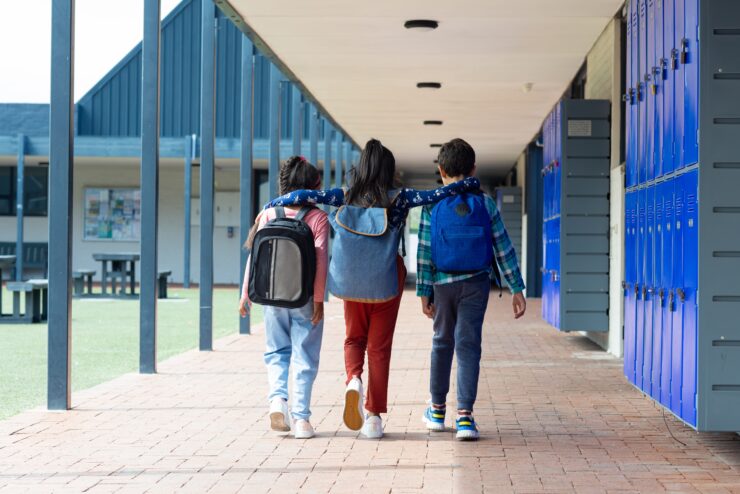Children’s awareness of stereotypes about school pathways
How do children think others view their path through school, and why does it matter?

Having been a student in an educational system with early secondary school tracking – in which children were grouped based on their abilities into different schools – Lisa Bardach wondered whether and how tracking might make educational inequalities worse. As Lisa tells Annie Brookman-Byrne, that led to her recent research on children’s perceptions of stereotypes about school tracks.
Annie Brookman-Byrne: How did your school experiences influence your research on school tracks?
Lisa Bardach: In Austria, children leave elementary school after four years to attend different secondary school tracks, and these decisions are informed by students’ performance, but also by teachers’ perceptions of their abilities, among other factors. I have always been very interested in the effects of tracking, including how it can exacerbate educational inequalities. For example, there is the potential for bias against students from lower socioeconomic (SES) backgrounds in tracking recommendations, despite teachers’ best intentions to make fair judgements. I also wondered about the influence of students’ perceptions of stereotypes regarding their own school track, which is precisely what my colleagues and I explored in our recent study.
ABB: Can you tell me more about that study?
LB: Separating students into school tracks at an early age can lead to educational inequalities. We chose to study one possible contributing factor among many: stereotypes about school tracks. Might students in lower-ranked tracks become aware of negative stereotypes about their track, with detrimental effects on their confidence and academic success?
“Separating students into school tracks at an early age can lead to educational inequalities.”
To test this idea, we studied nearly 4,000 German secondary school students from three different tracks over four years, when they were in Grades 5 to 8. Students in the lowest track were more aware of negative stereotypes about their own track than were those in higher tracks. Stereotype awareness also increased over time for all students. However, contrary to what we expected, awareness of stereotypes was no more strongly linked to academic outcomes for students in the lowest track than for those in other tracks.
ABB: What are the implications of your findings?
LB: Given the heightened awareness of negative stereotypes among students from lower-track schools, it seems important to challenge those stereotypes – for example by making changes in how adults interact with students and in the media. Such efforts should not focus only on specific tracks, but target any students who believe that negative stereotypes are attached to their track. Ultimately, I hope we can not only change perceptions of different tracks, but also improve the real-life opportunities and experiences of students from disadvantaged backgrounds.
“Given the heightened awareness of negative stereotypes among students from lower-track schools, it seems important to challenge those stereotypes.”
ABB: How do you plan to follow up on this study?
LB: This research has sparked my interest in further exploring social inequalities in education, and in particular examining the role of psychological factors in this process. I was surprised that we did not find support for our assumption that negative stereotypes would be more strongly linked to negative outcomes in the lowest academic track than in other tracks. I plan to continue my research into social inequality in education, while remaining open to the possibility that factors other than negative stereotypes may play a more important role.
Footnotes
Lisa Bardach’s research focuses on individual differences (e.g., motivation, personality, self-regulation, cognitive abilities) and how they interact and affect learning and development. She also conducts research on cultural diversity and social inequities, as well as developing interventions based on digital technologies to support children’s and adolescents’ positive school-related development. Since April 2024, Lisa has been a full Professor in the Department of Psychology at the University of Giessen in Germany. Lisa earned her PhD in Psychology at the University of Vienna, Austria, in 2018. After completing a post-doc at the University of York, UK from 2019 to 2020, she was an Assistant Professor at the University of Tübingen from 2020 to 2024. Lisa is a 2022-2024 Jacobs Foundation Research Fellow.
University of Giessen, Educational Psychology – Individual differences and (digital) learning
Google Scholar
Lisa Bardach contributed to a special collection on understanding and addressing inequality in education in the journal npj Science of Learning. This interview is part of a series dedicated to sharing practical takeaways and personal insights from authors.
The interview has been edited for clarity.


